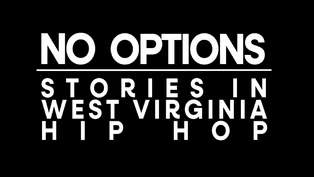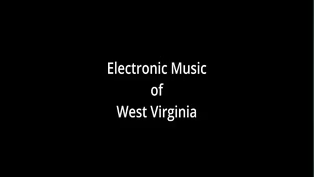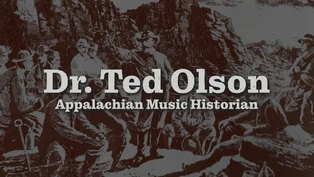Mountainthology
No Options Stories in West Virginia Hip Hop
Clip: Season 2025 | 9m 24sVideo has Closed Captions
Extended version of No Options Stories in West Virginia Hip Hop
Extended version of No Options Stories in West Virginia Hip Hop
Problems playing video? | Closed Captioning Feedback
Problems playing video? | Closed Captioning Feedback
Mountainthology is a local public television program presented by WVPB
Mountainthology
No Options Stories in West Virginia Hip Hop
Clip: Season 2025 | 9m 24sVideo has Closed Captions
Extended version of No Options Stories in West Virginia Hip Hop
Problems playing video? | Closed Captioning Feedback
How to Watch Mountainthology
Mountainthology is available to stream on pbs.org and the free PBS App, available on iPhone, Apple TV, Android TV, Android smartphones, Amazon Fire TV, Amazon Fire Tablet, Roku, Samsung Smart TV, and Vizio.
Providing Support for PBS.org
Learn Moreabout PBS online sponsorshipYou know, I can' speak for all the Appalachians, but I think I can't speak for black Appalachians.
But it's always felt like that because they're like, these kids got nothing of their own.
They got nothing to this.
Let's give them something that's theirs.
So there's no options.
Like we got no option to lose by this.
This is just either ride or die.
And most along Jordan, I've been making music since the 90s.
When it comes to production, I'm considered almost, you know, you know, the OG, my name is Celebrate the good times, right?
Focus on what you like about any given situation.
That is what I've try to do in my life.
My name is Gordon.
I think everybody has their lane and has their genre, and with my genre, I think is more energetic, more light, more happy, more flow, and more free.
My first demo was actually 1989.
Back then I was just, you know, such a fan of the culture that I just wanted to share the music.
I, I started doing, parties in at the University of Salisbury and my campus.
I wasn't a DJ at the time.
I was just playing stuff off my cassette tape.
I had a decent little house system, but it was this young kid who started coming to these campuses like, you know, I'm, I'm, I'm a real DJ.
I got turntables, blah, blah, blah.
So he started doing, my parties.
I went over to his house one day for the first time.
And so it's like walking into a mad scientist laboratory of of equipment.
And I'm already a B-Boy.
I that's how I first enter the culture as a as a breakdancer.
And that was the early 80s.
But I started tinkering with the music towards the 90s and within, with his help, he helped me, writ my first song, The Bittersweet.
And, yeah, you know, just a little corny title, but it was a hot beat.
My first recorded and released music as Salaam was 2010, was that 14 years ago?
The question was, what do you get?
No, it's we ar you know, we're getting there.
Technically.
I started producing before I started recording because I couldn't get a mic.
I don't know tha there was a real defining moment for when I decide I wanted to do music, because I played the clarinet startin from starting from sixth grade, and I probably was getting int hip hop right around that time.
And then like, by the time I was in eighth grade, that's when I was like full fledged into it as like a genre of music.
Like that was what I was consuming.
So it just kind of made sense, like, I'm gonna do this, this is this is it.
That would be, I guess, when I decided for sure, like, I'm going to be a rapper because it's cool.
And then on stage because I was, I would say elementary school, fifth grade, I think was our first term.
Michel.
I decided music was for me, probably around 2019, is when I really started taking it serious, really started to see the more realistic side of it was was possible for me, the more business side of it I was able to do those skills as well as being creative.
So I decided to go ahead and take that step to making it for real, making i serious and chasing my dreams.
And 1993 is a big year for me, because that's when I actually get the equipment and I start making those beats and I can hear what I can do.
And we talking about the tha year, the things that came out that year you know, Wu-Tang, 36, chambers, Black Moon in This Days, Cypress Hill, Black Sunday.
These are the albums that I'm making my beats and comparing my beats to.
I quit my job.
I went on the whole full time broke musician bit for the whole rest of the 90s.
After that, I went out there.
I lived in Atlanta.
I lived in Chicago, I lived in New York.
There's just a bunch of us out there trying to figure this thing out, you know, work on your craft, but at the same tim become an entrepreneur with it.
If you don't serve your want as much as you serve your needs, there's kind of like there's kind of like a whole there's a disconnect.
In the past, I was more so guided by the style and the excitement and just the energy of a song, more so than what was being said.
Being a hip hop guy, like, I've always put great emphasis on like, wordplay and just saying something witty and smart and and hopefully funny.
In my more recent work probably in the last three years or so, it's been more focused on what exactly is going on in my life.
And like what I think about the things I see, and also trying to trying to create different scenario and kind of paint a picture that that makes some kind of point.
I like to bring my ideas to life.
So I do the writing on Mondays, I do my beats, I like share, and I like to sit down and writ while it's being put together.
The creativeness, the creative process, the fans, the ideas, the giving, a receiving the energy that makes Guardian.
I would describe my sound as a whole is very energetic, very high vibrational, a lot of a b happy music.
I love to make dance music, any type of music that can make people move or feel good or smile or just want to live a little bit longer, that's my style.
But I started getting these demos from my brother who was in high school, a mortgage, guitar high, and I'm living in Connecticut and I'm like, yo, this is better than anybody I am working with.
So I make a decisio to move back to West Virginia.
Then I get here in 99.
There's nothing there's no kin of resources here for anything.
We had to create everything.
We had to do shows and on Grand Avenue and, and and raves and biker bars and VFW, I had to, to consciousl go to neighborhoods and talk to to to artists and drug dealers and be like, look, I'm trying to create a scene here.
I mean, we sat down like country leaders and like, look, man, West Virginia is too small for us to try to like one compete against each other, but second is too small demographically for us to make any kind of or career here.
So we got to treat these cities like neighborhoods.
You come play here, show with us, then we'll come play a show with you.
Yeah, get on a track with us and we'll get on track with you slowly.
We got this thing bubbling.
You know what I'm saying?
By mid early 2000s.
Now, you know I can do a decent showing and feel one, two, three up.
Now you know we can go to ou Maltese dogs house in Huntington and I do a hip hop event, but we had to create that.
So you we had to create that.
See, I think when folks se someone like me doing a two year commercial and headlining it live on the levee, people see that and they're like, oh, West Virginia hip hop is a thing.
It's very broad and pretty vibrant as far as like the individual artists cover a pretty wide spectrum, which I think is pretty cool.
Everyone has a different identity, and so you never know who you're going to run into each year and what kind of music, but what type of creative mind they have.
So definitely the hidden gem type of scene.
I've met people who I feel like, wow, like I feel like I've known you my whole life.
And then music has been the mai connect while we got together.
And so once you do tap into that scene and you find the hidden gems, you'll find the community you're looking for in the network.
You're looking for.
When I say it's therapeutic, it's therapeutic.
I love what I do, and I think that translates into health and and mental stability for me.
And, right there, that's enough for me as a creator and as one of many creators.
I want the right person to find their right artist.
And whatever it takes to do that, as long as people are getting entertaine and the entertainers are being appreciated and celebrated and duly compensated, that's all you can ask for.
Be yourself love yourself, protect yourself, and surround yourself with people who want the same and who are genuine.
Because you need a strong team to survive and to be very successful.
There are unique stories that are in Appalachia that need to be told untold, unique stories in Appalachia that aren't represented, that need to be represented.
We've seen so much talent not get the recognition that it need to.
Sometimes we don't feel like we should do it, or it's worth doing, but I just see so many kids who don't want to do it because they don't.
They worry about what somebody is going to think or they don't think they'r they're qualified enough to do.
And who were from West Virginia has done it before.
Oh, by West Virginia Make it out.
Do no damn hip hop to it.
Do it.
No Options Stories in West Virginia Hip Hop
Video has Closed Captions
Clip: S2025 | 9m 24s | Extended version of No Options Stories in West Virginia Hip Hop (9m 24s)
Electronic Music Of West Virginia (Full)
Video has Closed Captions
Clip: S2025 | 9m 15s | Extended version of Electronic Music Of West Virginia. (9m 15s)
Dr. Ted Olson - Appalachian Music Historian
Video has Closed Captions
Clip: S2025 | 8m 48s | Extended version of Dr. Ted Olson - Appalachian Music Historian. (8m 48s)
Providing Support for PBS.org
Learn Moreabout PBS online sponsorship

- News and Public Affairs

Top journalists deliver compelling original analysis of the hour's headlines.












Support for PBS provided by:
Mountainthology is a local public television program presented by WVPB



